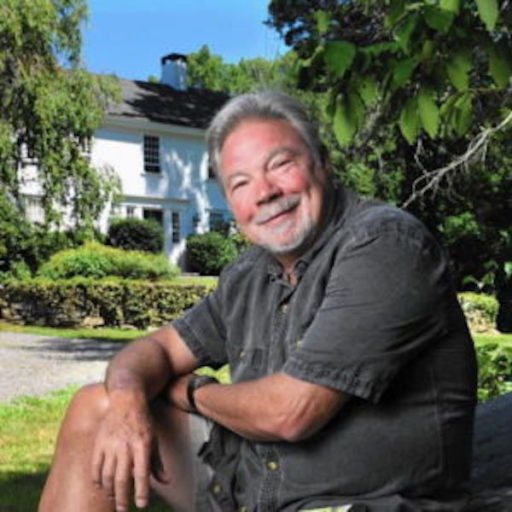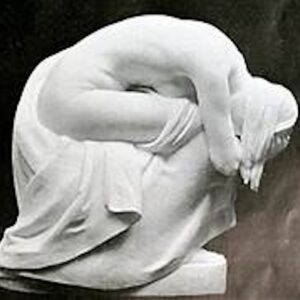We recently spoke with author Robert Cording about his new Slant book, In the Unwalled City.
You’ve probably done interviews before that touched on the connection between your personal life and your writing, but In the Unwalled City, which deals with your son’s death, is an occasion that takes the life/writing relationship to a completely different level. Did you ever consider silence as a response or did writing about it feel necessary, inescapable?
When our son died, I was struck by a phrase my wife repeated both shortly after his death and in the nearly five years since: “Where are you, Daniel?” We need to imagine a somewhere for those we love. I think, in part, that need is connected to our greatest fear—that those we love simply disappear without a trace as time passes. Dante’s dead constantly ask to be remembered, and remembrance is our antidote to oblivion. So while I was struck silent for a year, I began to experience what I’ll call a desperate need to restore, however impossible, Daniel’s life in ours and in our family’s. To remember him. I think all the various voices in the book—my talking directly to Daniel; my talking about Daniel; my talking about grief in general; my use of both poems and prose—all suggest that desperation.
Perhaps it is a cliché but Emily Dickinson’s “After great pain, a formal feeling comes” seems to touch on something deeply true. Have you found that to be so?
Yes. Or call it the need to give any kind of form to an experience that is both formless and raw. In the book, I try to capture that “formal feeling” in those poems that are about grief in general—the series of lamentations, the more prayer-like poems, the poems in rhymed quatrains. More importantly, perhaps, they are a way of letting the reader know I don’t think of my grief as different from others’ grief, or more intensely suffered. Grief is grief, and I wanted to capture the all-too-human act of grieving in my own grief.
Which came first: the prose memoir or the poems? When did you know that you needed both?
The poems. Even after I wrote the prose memoir, I was thinking of it separately. Then one day I plucked Lowell’s Life Studies off the shelf, read the prose piece on Revere Street and his family and began to think of placing the memoir among the poems—in an arrangement something like Lowell’s. And finally, I came to see that the memoir would work more effectively—at least I hope so—by being broken into sections and placed throughout the book so that the poems and prose could speak back and forth to one another. An element of all those voices I spoke of earlier in In the Unwalled City.
You’ve said that as someone who believes that the created order is a gift, your primary vocation has been praise. But death makes that difficult, if not impossible, right? The ostensible opposite of praise is blame, but you don’t seem to go there, even if you felt the temptation….
The foundation of my life is my belief in Genesis 1—that God created the heavens and the earth and declared it good. I mean here that the generative act is an act of love, of pure gift. That everything that is need not be, but is. To say that places one in a posture of praise, of gratitude.
But, since my son’s death, it has been harder to be grateful, to praise. I am thankful for my son’s life, for the love he knew from his wife, his friends, his family. I certainly feel no anger towards God regarding his early death. But, in the book of Job, after the Whirlwind, after Yahweh restores Job’s previous life and gives him a new family, I don’t believe we are supposed to see this restoration as a reward or a replacement. Surely one family cannot replace another. And nothing can replace my son. My life cannot be the same in that regard.
My job is as it always was: I must learn to die. But that involves now this new element: I must continue Daniel’s life inside my own until I do.
I could also say, though this is much harder for me to say, that, returning to Genesis 1 again, creation is “good” not just because it is the gift of one individual life, but also the gift of the continuum of life. Though it is impossible for a father to say my son’s life ended, but life continues without feeling the “grating inside gratefulness,” as I said in the memoir, I am comforted by the awful goodness of life.
Neither the poems nor the memoir pull any punches: you’ve endured something that is almost past enduring. You’ve also said that you must “continue Daniel’s life inside my own until” your own death. But in the poems Daniel reproves you for attempting to speak for him. What are the promises and perils of “remembrance”?
In life, Daniel was always my Shakespearean fool, puncturing my philosophical ideas, calling me out when I simplified things, and making sure that whatever I said could withstand some equal and opposite idea. He majored in philosophy, was a better reader of Heidegger and Schelling than I ever was, and he often just plain relied on his life experience which led him to be a relentless questioner. And so when I began writing the poems, I made him a character who was very much like my son—the person who always was the first to reprove me when he thought I was simplifying life. I say “character” because he often, as you noted, reproves me from some imagined afterlife because he knows I’m just trying to make things better for myself. It’s my way of reminding myself that all writing is an act of betrayal, one never able to speak about all that eludes our speaking.
You’ve said that “the task of writing is always one of resurrection.” Can you unpack that a little?
The task of writing for me is always one of resurrection, of making live again what is no longer. As least as best one can. The sacraments embody a very deep truth. Christ lives when we take eat, when we take drink, in remembrance of him. Our loved dead live when we allow the absence and pain of their departure to be filled by the presence of our love. What do I mean when I say I feel Daniel’s presence? Let me first say what I don’t mean: I don’t sense a kind of ghost-presence or spirit, what the philosopher Gabriel Marcel called a “vaporized object.”
Birth, death, and love are the central mysteries of our lives. The death of a child involves a parent in all three of these mysteries. In a play (based in his experiences in the war in which he had to notify and meet with parents regarding the death of their child), Gabriel Marcel has a character say of her dead son, “When I think of him in a certain way—with tenderness, with recollection—there wells up in me something like a richer, deeper life in which I know he participates. This life is not I, nor is it he; it is both of us.” This passage captures what I have experienced—when I first read it, I thought, yes, I know that. This passage is not about remembrance only; it is about the power of love which allows one to feel the deceased loved one as an accompanying presence. I feel that Daniel accompanies me, that there is the possibility of life-in-death-in life. Love is what goes on in death, after death, in life that accompanies death. Daniel’s presence calls to something in me to answer. It’s as if his loss, his utter absence asks to be part of my ongoing life, a hole I must accept and carry around with me. When I can be present to that absence, it helps me to be whole.
Robert Cording taught English and creative writing at College of the Holy Cross for thirty-eight years and then worked as a poetry mentor in the Seattle Pacific University MFA program. He has published nine collections of poems, the latest of which is Without My Asking, and a volume of prose on poetry and religion, Finding the World’s Fullness. He has been awarded two NEA fellowships in poetry, a Pushcart Prize, and has had work in numerous anthologies, including Poets of the New Century, The Best American Spiritual Writing, The Poetry Anthology, and The Best American Poetry.





